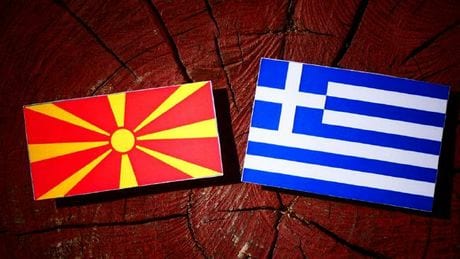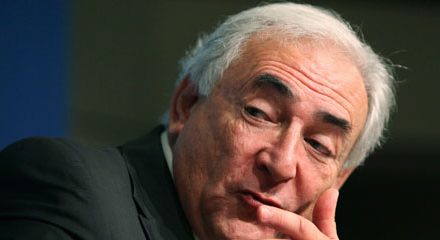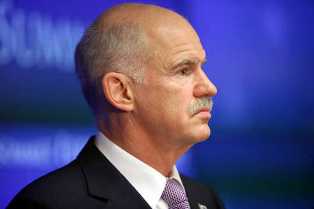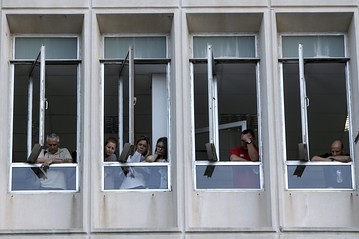by Benedict Brook, centraltelegraph.com.au
A EUROPEAN country that declared independence more than a quarter of a century ago, and has been recognised as a fully-fledged nation for almost as long, is still on the search for a name.
To some, the small nation of two million, governed from Skopje, is simply Macedonia; to others, it will never be that simple.
The conundrum of what to call the nation, in the centre of the Balkan Peninsula in south eastern Europe, has focused minds from Brussels to New York and Geneva. This week, the debate took a new urgency as tempers flared in Greece.
Over the weekend, more than 100,000 people gathered in Athens’ central square to protest at a compromise that could see Greece agreeing to Skopje using the word “Macedonia” in its official name.
The crowd chanted “Hands off Macedonia!” and “Macedonia belongs to Greece!”
Around 700 left-wing and anarchist protesters set up a counterdemonstration nearby. Rocks were thrown with police responding with tear gas and stun grenades.
The Greek compromise is significant for the government of prime minister Alexis Tsipras, given the deep nationalistic fervour the name conjures up on both sides of the border.
So why has it taken so long to agree on a name for a country?
WHERE IS MACEDONIA?
It’s a good question, and there is no exact answer. To Skopje, the Republic of Macedonia is their nation. To Athens, Macedonia is a region in central northern Greece with Thessaloniki its largest city.
Ancient Macedon is ill defined but generally includes Greek Macedonia and part of the area governed by Skopje. The wider region of Macedonia also spills into Bulgaria, Albania, Serbia and Kosovo.
SO THE REGION’S NOT COHESIVE?
Absolutely not, and it’s criss-crossed national borders for some time. Macedonia is also located at the meeting point of the Albanian, Slavic and Greek peoples.
The people of Skopje, for instance, mostly speak Macedonian, a Slavic tongue, or Albanian. That’s entirely unrelated to the Greek spoken by Greek Macedonians.
“At the heart of the argument is whether any one of the Balkans’ ethnic groups should monopolise Macedonia’s heritage or whether the name could be constructively shared by everyone in the region,” Neophytos Loizides, a Professor in International Conflict Analysis at the University of Kent told The Conversation last week.
WHY IS SKOPJE SO KEEN TO CALL ITS COUNTRY MACEDONIA?
Skopje says there is historical precedence for using the name. Before independence in 1991, Macedonia was the name of the Yugoslav region which had exactly the same borders. Skopje has also claimed many of the historical symbols of Macedonian antiquity, such as the Star of Vergina, as its own.
WHAT’S ATHENS’ POINT OF VIEW?
Athens points out more of both the Ancient and modern Macedonia is within its borders than any other country’s. The population of Greek Macedonia is also greater than that of the entire Republic of Macedonia Why, then, should that nation claim the name?
SO WHAT IS THE COUNTRY CALLED NOW?
Loads of things. The Republic of Macedonia is the name the country calls itself. But Greek pressure has ensured that internationally it’s generally referred to as the Former Yugoslav Republic of Macedonia or “FYROM”. Colloquially, it’s going Skopje’s way, with many visitors simply calling the country Macedonia.
HOW AS IT AFFECTED GREEK-MACEDONIAN RELATIONS?
Badly. The two are worse than those angry neighbours you see on A Current Affair. The name fracas led Greece to slow down Macedonia’s eventual entry to the United Nations, and it’s not a member of NATO for the same reason.
WHAT’S ALEXANDER THE GREAT GOT TO DO WITH IT?
The Ancient Greek figure of Alexander the Great of Macedon was adopted by the Skopje government as a historic national figure. The previous, more nationalist government, renamed the city’s airport after the hero. Skopje also has a ridiculously big statue, which looks suspiciously like Mr The Great. This has riled Athens because Alexander’s birthplace was within the boundaries of modern Greece.
IS THERE MORE TO THE DISPUTE THAN A NAME?
There have always been fears in Greece that if Skopje was officially allowed to call itself simply Macedonia it may, at a later date, agitate for parts of that region within Greece.
CAN IT JUST BE CALLED FYROM?
Skopje is not keen on that name hanging around. It harks back to Yugoslavia, which is long gone.
WHY IS THIS ALL HAPPENING NOW?
The dispute has always been simmering, but right now the UN is trying to sort it out once and for all. UN envoy Matthew Nimetz is in the region holding talks with leaders to find a way out of the impasse.
“I think there is a will here (Athens), and I believe also in Skopje, to try to reach a settlement,” he told reporters after talks with Greek Foreign Minister Nikos Kotzias last week.
COULD A SOLUTION BE FOUND?
Despite the protests, there is hope. Macedonia has a new, less nationalistic prime minister in Zoran Zaev who has proposed taking the Alexander the Great name off the airport.
In December, he made another symbolic move, acknowledging historical figures were not Skopje’s alone. “I give up the claim of Macedonia being the sole heir to Alexander. The history belongs not only to us, but also to Greece and many other countries,”
Mr Zaev and Mr Tsipras also had a cordial chit-chat at the World Economic Forum in Davos last month. There, Mr Tsipras said Greece could accept a “composite name” that included the word “Macedonia’.
WHY IS IT IMPORTANT A COMPROMISE IS REACHED?
A solution is in everyone’s interests. Macedonia needs Greece’s help to if it wishes to join NATO and eventually the European Union. And Greece wants to bring Skopje closer, lest Moscow fill the void.
WHAT NAMES HAVE BEEN SUGGESTED?
Greece had previously suggested the Vardar Republic or Republic of Skopje. But they were never going to fly.
One solution would have seen Skopje use the name Macedonia internally but Northern Macedonia internationally. But the current front-runners look like Upper Macedonia, New Macedonia or Macedonia-Skopje.
The Skopje Government has said it will put a future name to a referendum. Passions have begun to run high again.
Greece’s greatest living composer and resistance icon Mikis Theodorakis said a referendum should also be held in Greece. “Macedonia was, is and will forever be Greek,” the 92-year-old told a massive crowd of protesters gathered in Athens.
The Greek PM doesn’t want a messy public vote on the issue. He just wants the issue to go away.



















